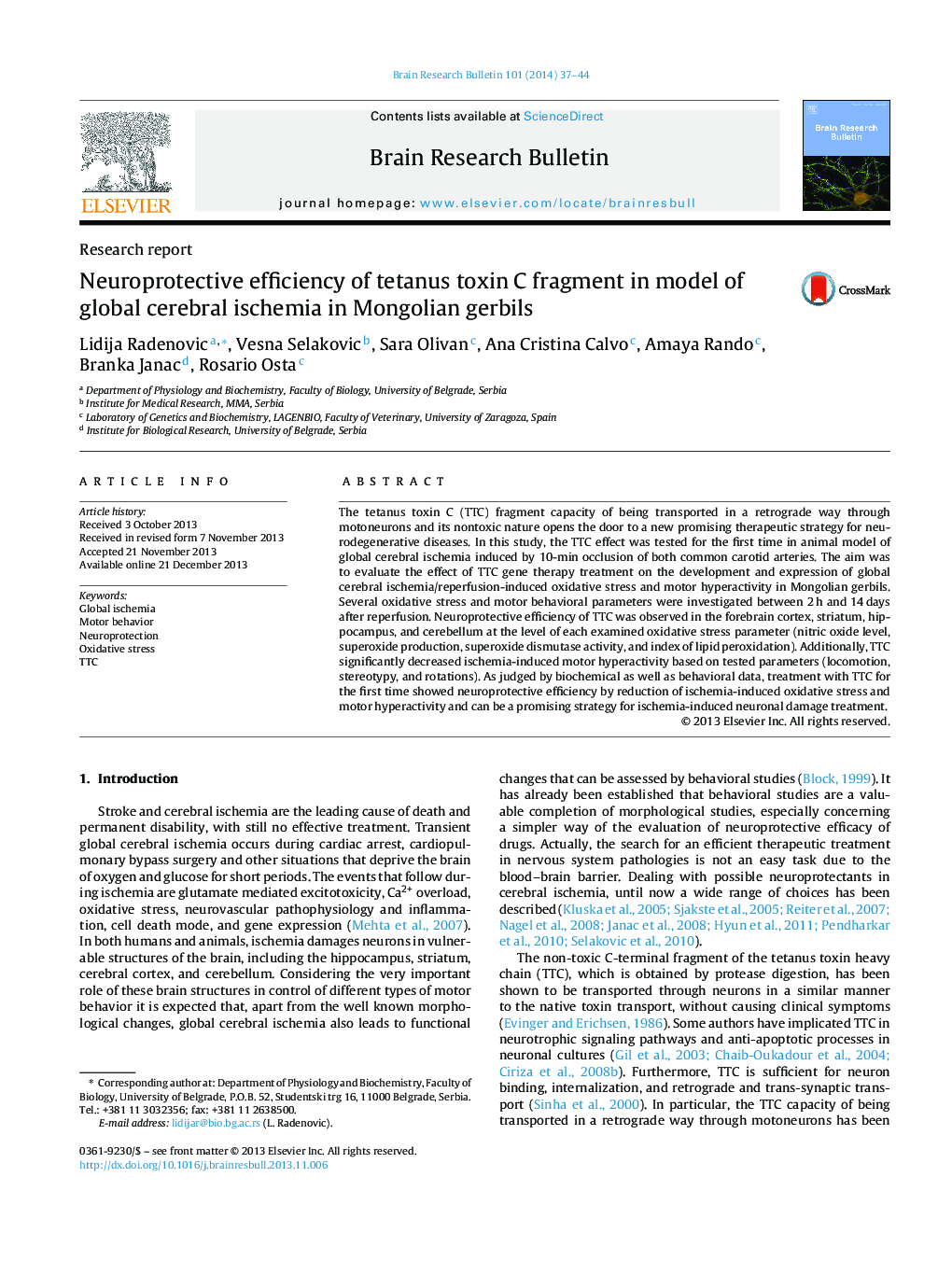| Article ID | Journal | Published Year | Pages | File Type |
|---|---|---|---|---|
| 6261792 | Brain Research Bulletin | 2014 | 8 Pages |
â¢The effect of tetanus toxin C (TTC) fragment was tested in ischemic gerbils.â¢TTC improved the neurological status and survival of ischemic gerbils.â¢TTC completely abolished ischemia-induced oxidative stress in the brain of gerbils.â¢TTC decreased ischemia-induced motor hyperactivity of gerbils.
The tetanus toxin C (TTC) fragment capacity of being transported in a retrograde way through motoneurons and its nontoxic nature opens the door to a new promising therapeutic strategy for neurodegenerative diseases. In this study, the TTC effect was tested for the first time in animal model of global cerebral ischemia induced by 10-min occlusion of both common carotid arteries. The aim was to evaluate the effect of TTC gene therapy treatment on the development and expression of global cerebral ischemia/reperfusion-induced oxidative stress and motor hyperactivity in Mongolian gerbils. Several oxidative stress and motor behavioral parameters were investigated between 2Â h and 14Â days after reperfusion. Neuroprotective efficiency of TTC was observed in the forebrain cortex, striatum, hippocampus, and cerebellum at the level of each examined oxidative stress parameter (nitric oxide level, superoxide production, superoxide dismutase activity, and index of lipid peroxidation). Additionally, TTC significantly decreased ischemia-induced motor hyperactivity based on tested parameters (locomotion, stereotypy, and rotations). As judged by biochemical as well as behavioral data, treatment with TTC for the first time showed neuroprotective efficiency by reduction of ischemia-induced oxidative stress and motor hyperactivity and can be a promising strategy for ischemia-induced neuronal damage treatment.
Graphical abstractDownload full-size image
